 Get
Get
Moroccan Dirhams Fast!
- Free home delivery over £750
- with Royal Mail Special Delivery 1pm
- Better rates than the banks
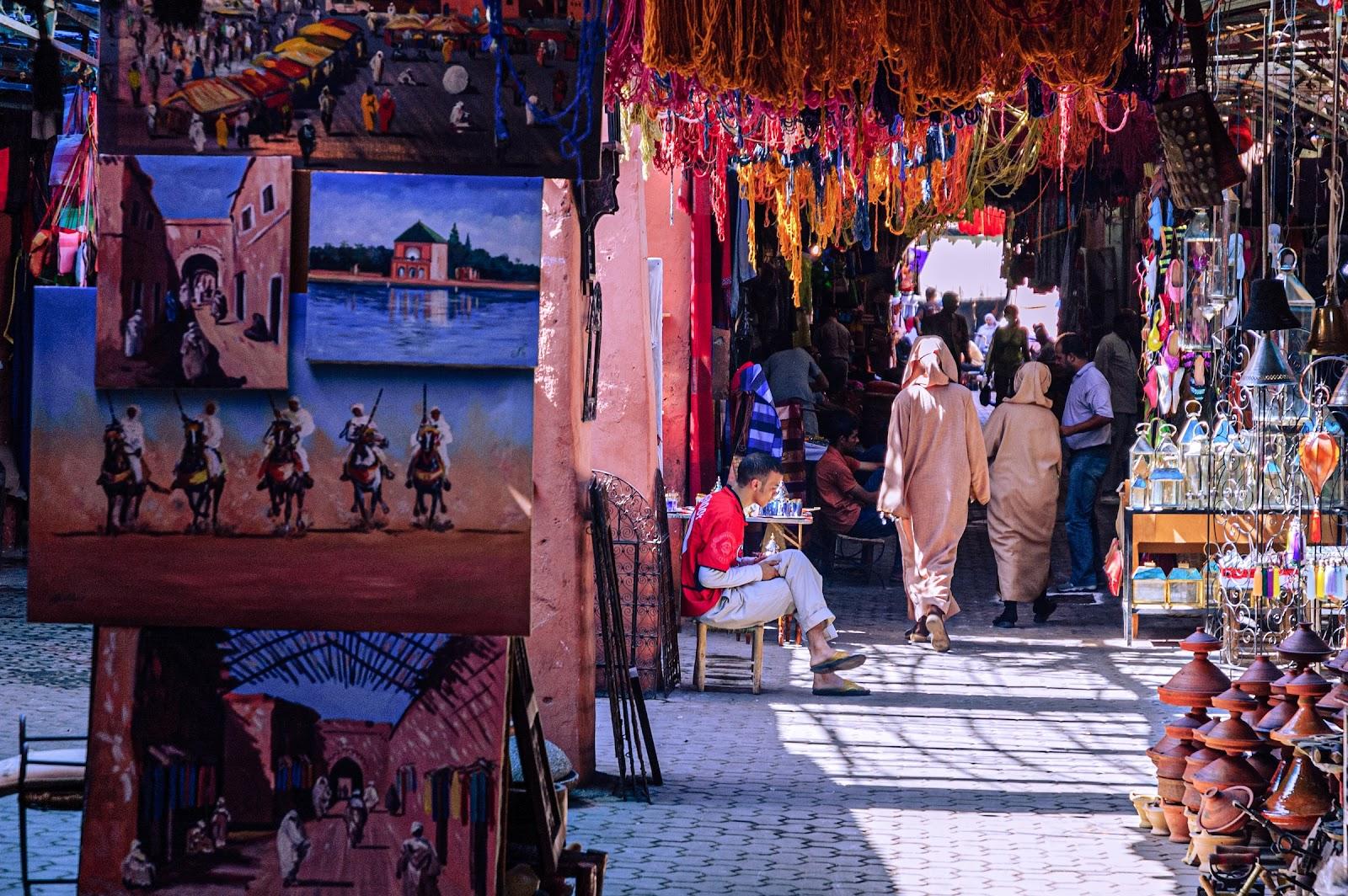
Travelling to Morocco?
Get the best rates for Moroccan currency online
Are you ready for your trip to Morocco? All the tagine and baklava you can eat await you, but first, let’s talk Morocco money.
Order your Moroccan dirham at Manor FX today. Get the best exchange rate for Moroccan dirhams and more MAD currency in your wallet.
Convert GBP to Moroccan dirham and get home delivery, or pick them up in-store from the Manor FX bureau near Heathrow.
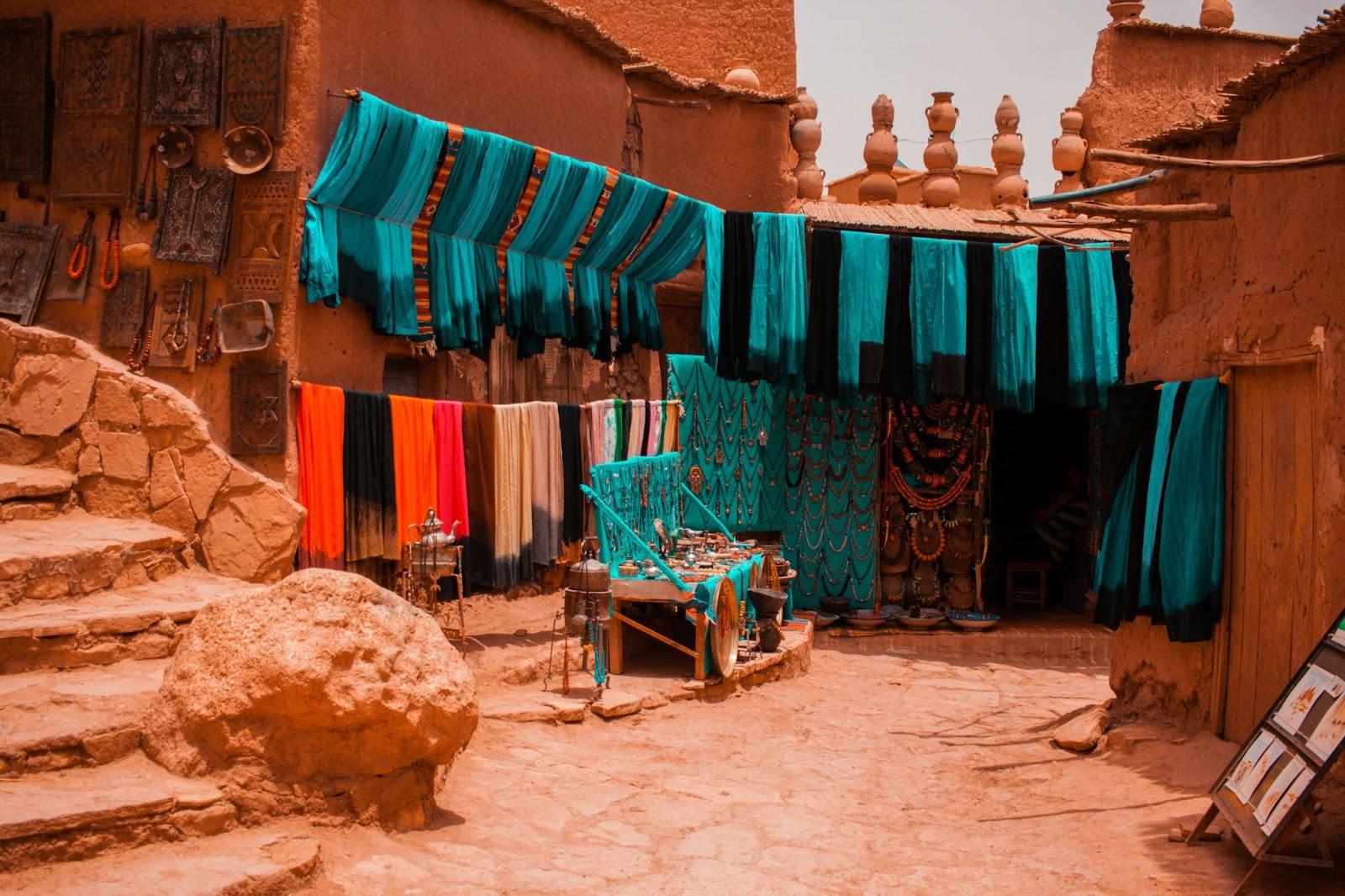
Moroccan travel money
What is the currency in Morocco?
The official currency in Morocco is the Moroccan dirham. The word dirham derives from the Greek word δραχμή, which means drakhmé.
The Morocco currency code is MAD.
And the Morocco currency symbol is DH. We offer the best British pound to dirham exchange rate. View our rate here and convert pounds to Moroccan dirham today!
We’ll also convert leftover Moroccan dirhams to GBP at the best rate on your return.
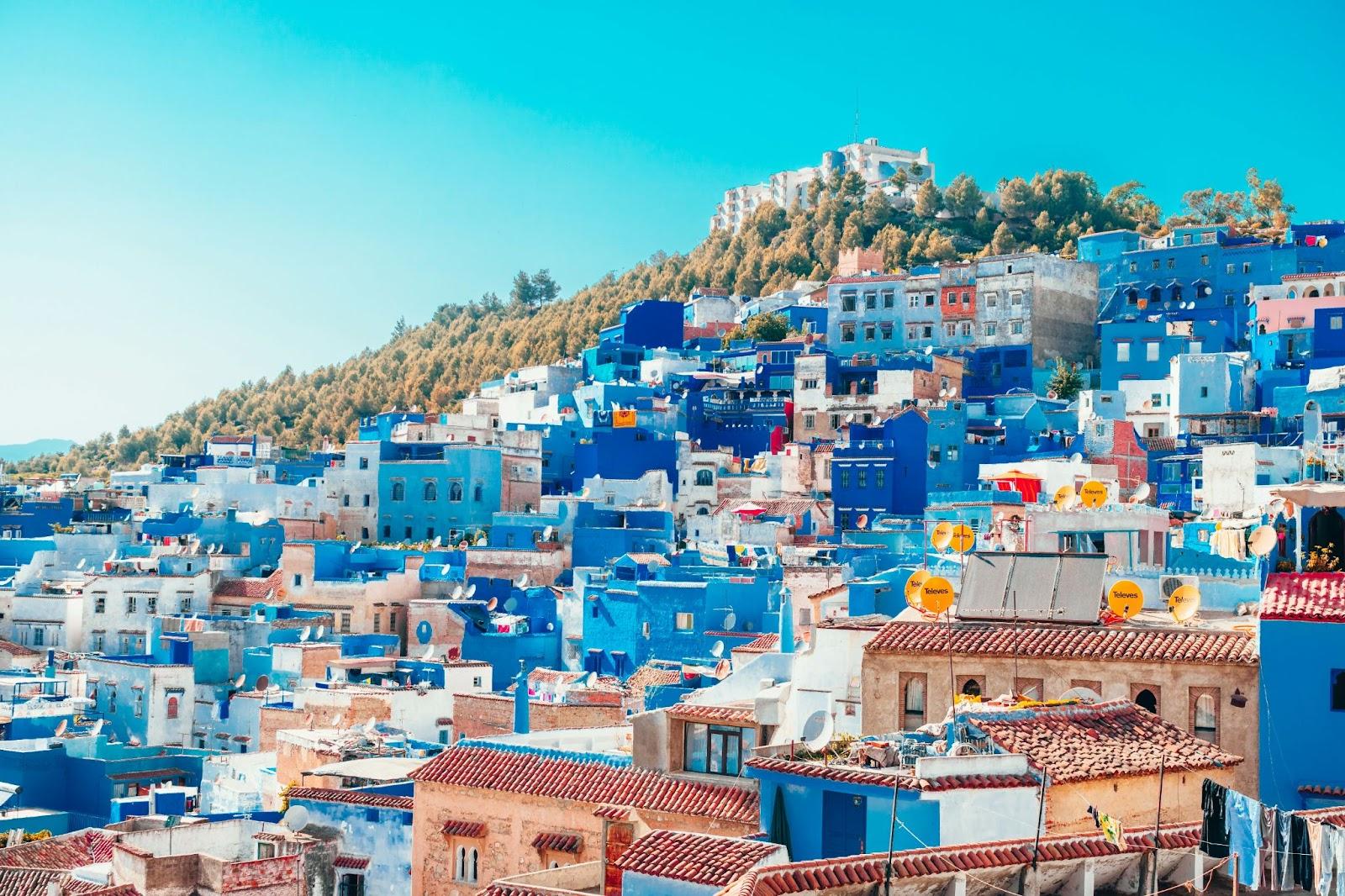
Where is the best place to buy Moroccan dirhams?
Buy your dirhams in the UK from Manor FX before your trip.
Get peace of mind and save time when you arrive in Morocco. ManorFX has the best exchange rate for dirham online, so you can better plan your budget and expenses. View our exchange rates here.
Can I buy Moroccan dirhams in the UK?
Yes, you can. But you won’t find them at most major banks or the Post Office.
You’ll typically find MAD currency in the UK through specialist bureau de changes, online currency exchanges, and airports. Airport rates offer the worst value and poorest Moroccan dirham exchange rates.
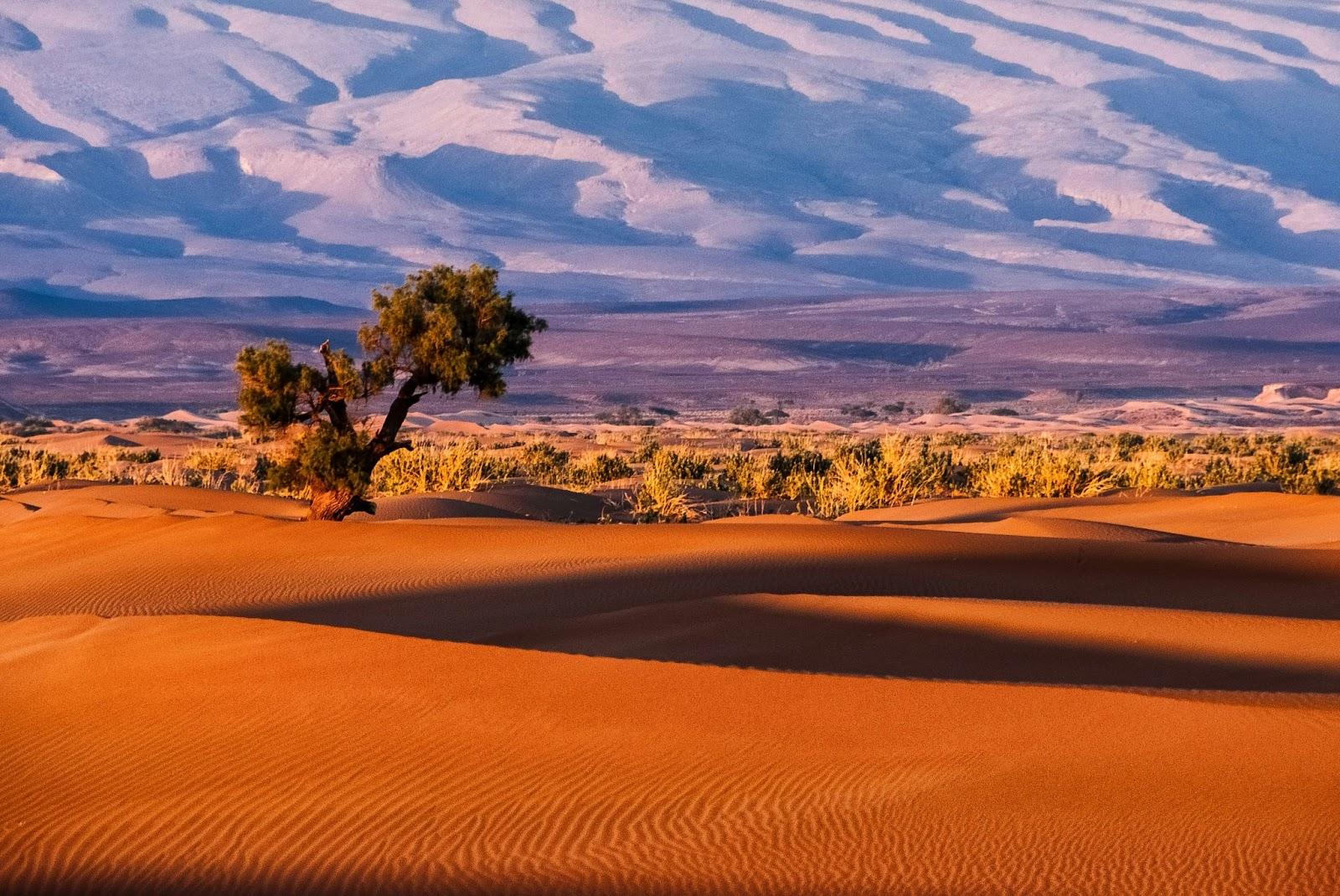
What currency is best to take to Morocco?
The Moroccan dirham is the best currency to take to Morocco. Some places might accept foreign currencies like the euro or the US dollar, but Morocco currency is more convenient and cost-effective.
Can I use my UK debit card in Morocco?
Yes. You can pay by debit card in the tourist centres of Morocco’s main cities. But even there, a large part of the economy is cash-only.
Please note: It’s a good idea to contact your bank before using your card for payment to prevent them from blocking your card.
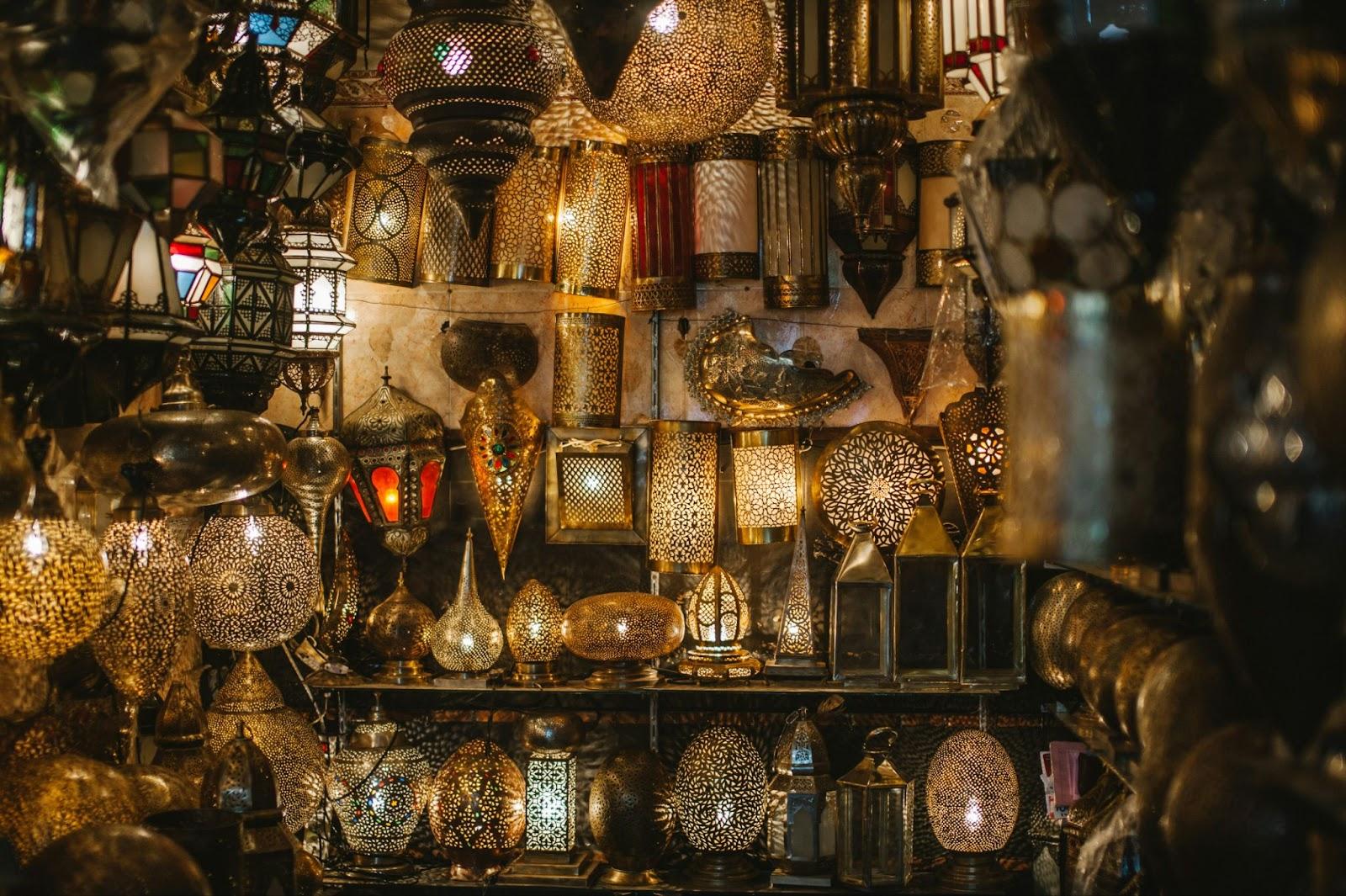
How much does it cost to use an ATM in Morocco?
ATM fees in to withdraw Moroccan money in Morocco depend on several factors:
- Withdrawal charges, which vary by banking establishment
- Foreign transaction fees for converting British pounds to Moroccan dirhams,
- Additional machine fees.
Is it better to use cash or card in Morocco?
In most cases, using cash is best; you will avoid fees, and it is accepted everywhere. Cards offer security and convenience in tourist areas, but bank fees increase quickly.
Buy your dirhams now
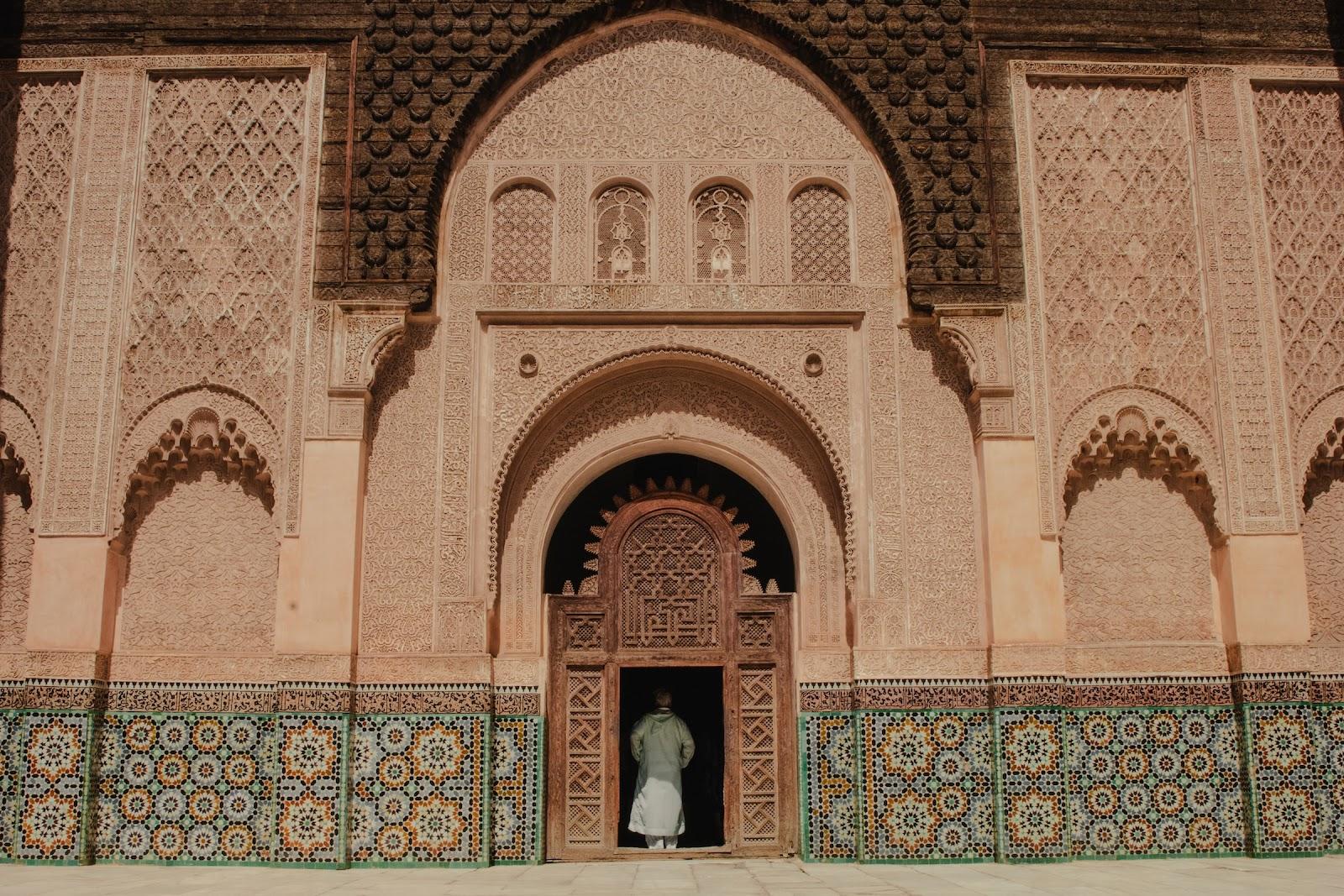
Should I use cash in Morocco?
Yes. You’ll find that cash is widely accepted, and many vendors in Morocco, such as sales assistants in Souk markets and taxi drivers, only accept payment in MAD currency. You’ll also need to carry Morocco currency for tipping.
If you’ve got money left over, convert Moroccan dirham to UK pounds with Manor FX.
Are euros accepted in Morocco?
Yes. Euros are accepted in tourist areas and larger cities. However, the Moroccan money exchange rate is less favourable.
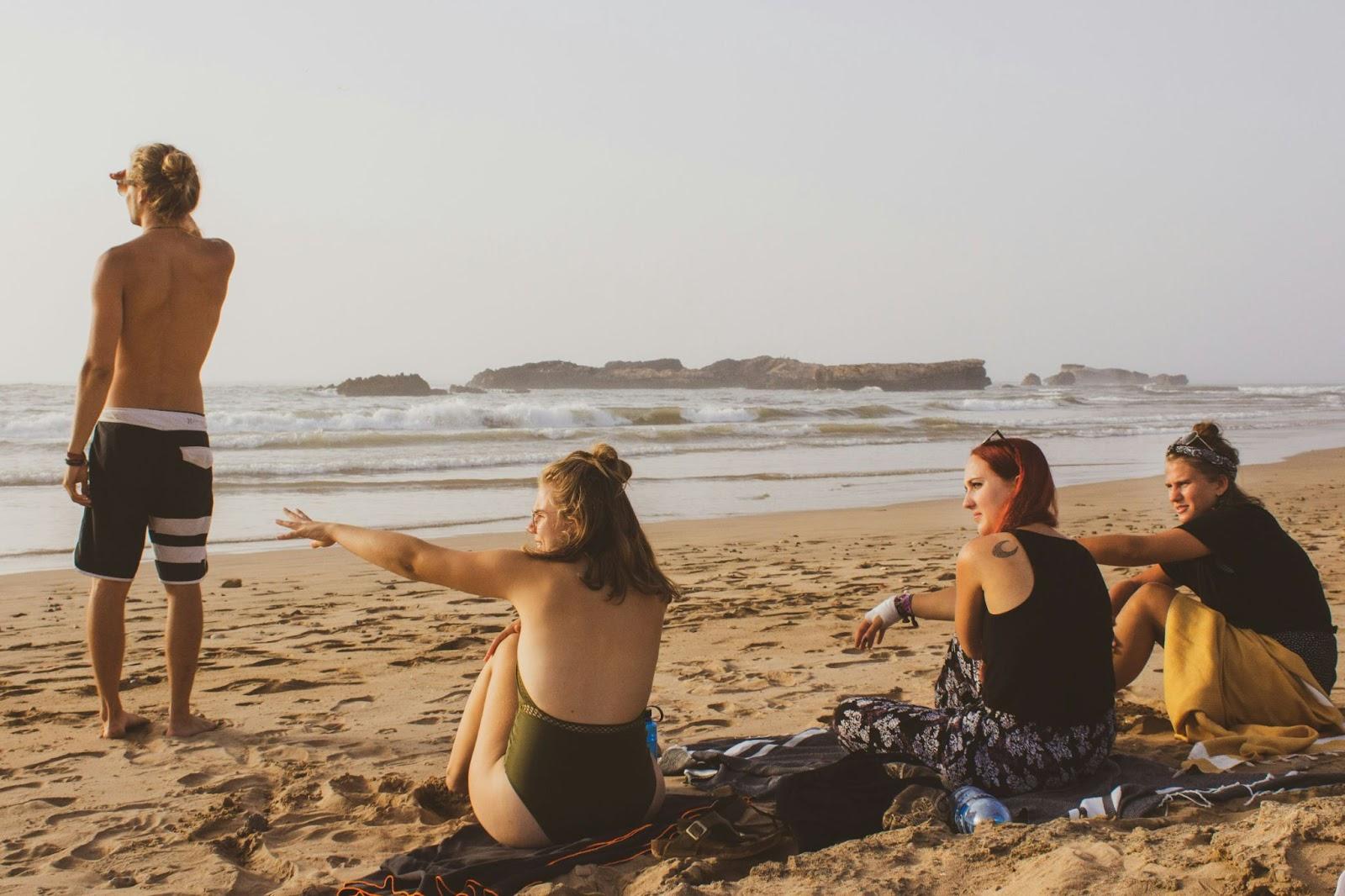
Is Morocco a cheap country to visit?
Yes, Morocco is affordable for travellers. You can enjoy cheap street food, budget-friendly accommodation, and reasonable souvenirs.
How does tipping work in Morocco?
Tipping, or “baksheesh,” is a valued custom in Morocco but not mandatory. In restaurants and cafes, a tip of 5-10% is typical. For hotel staff, expect to tip 10-20 MAD currency per service. Public restroom attendants also expect a small tip of 2-5 MAD Morocco currency.
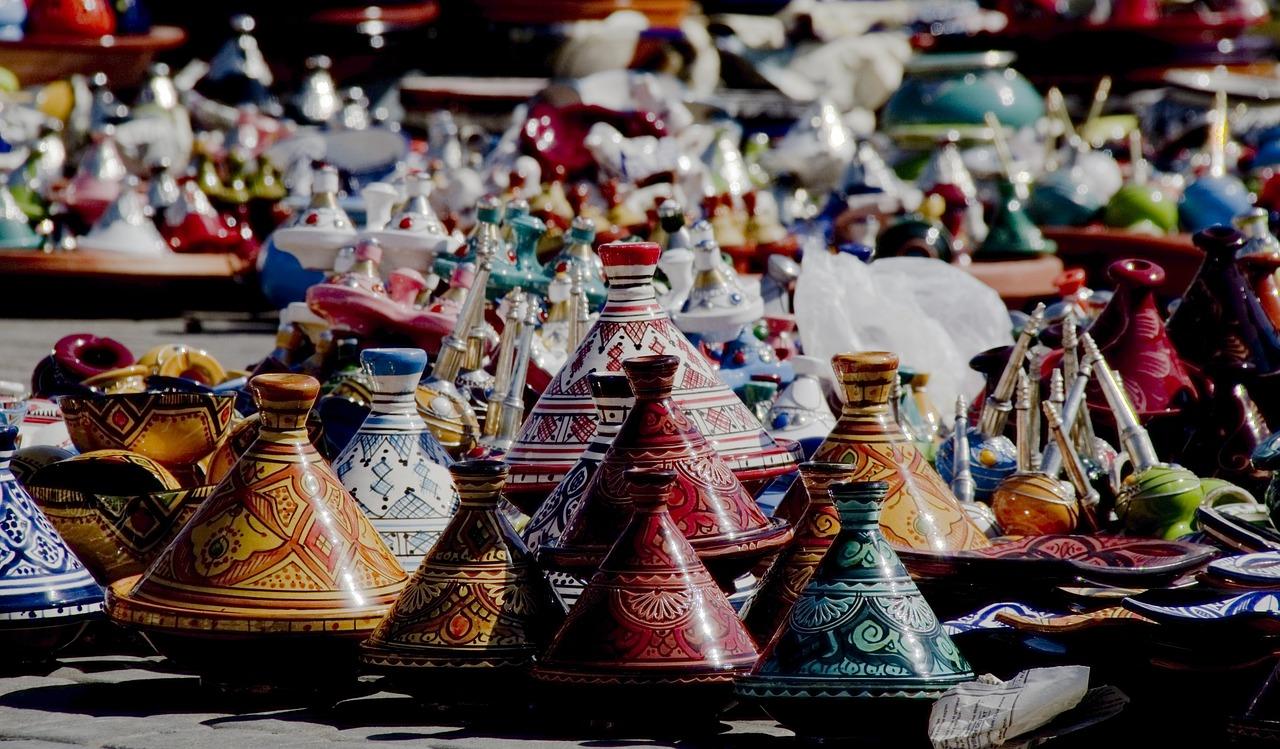
Buy your dirhams now
Moroccan currency
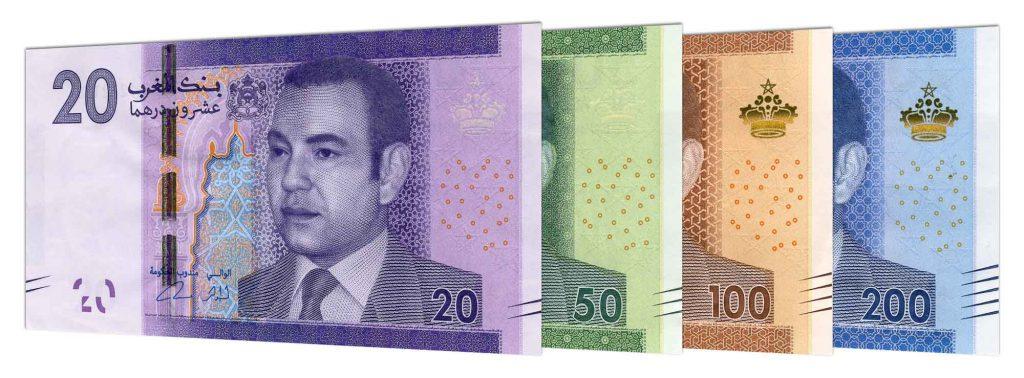
Banknotes in Morocco
- Denominations: 20, 50, 100, 200 dirhams (coins replaced 10 dirham notes). Issued by the Central Bank
- Designs: Colour-coded for easy identification
- Front: Portrait of King Mohammed VI
- Back: Moroccan culture, history, and landmarks (varies by denomination)
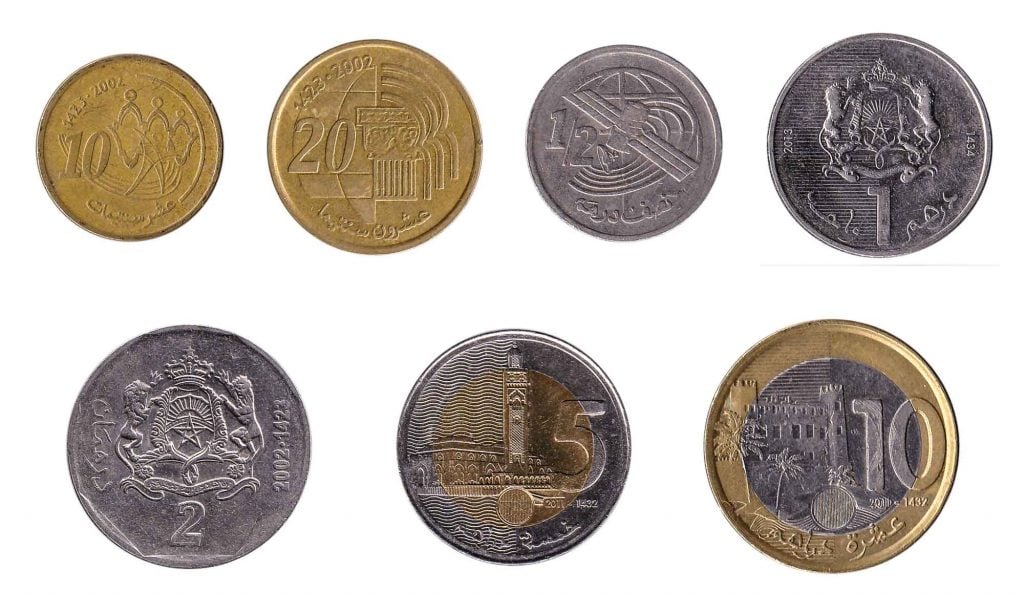
Coins in Morocco
- Denominations: 1, 2, 5, 10, 20 dirhams. Dirhams are subdivided into 100 smaller units called centimes
- Designs: Reflect Morocco’s culture & history
- Front: Portrait of King Mohammed VI
- Back: Landmarks, architecture, flora, fauna, or national symbols
If you have some leftover Moroccan dirham, we can help. Our sister company, Leftover Currency, can help you exchange Moroccan coins for English currency on their website.
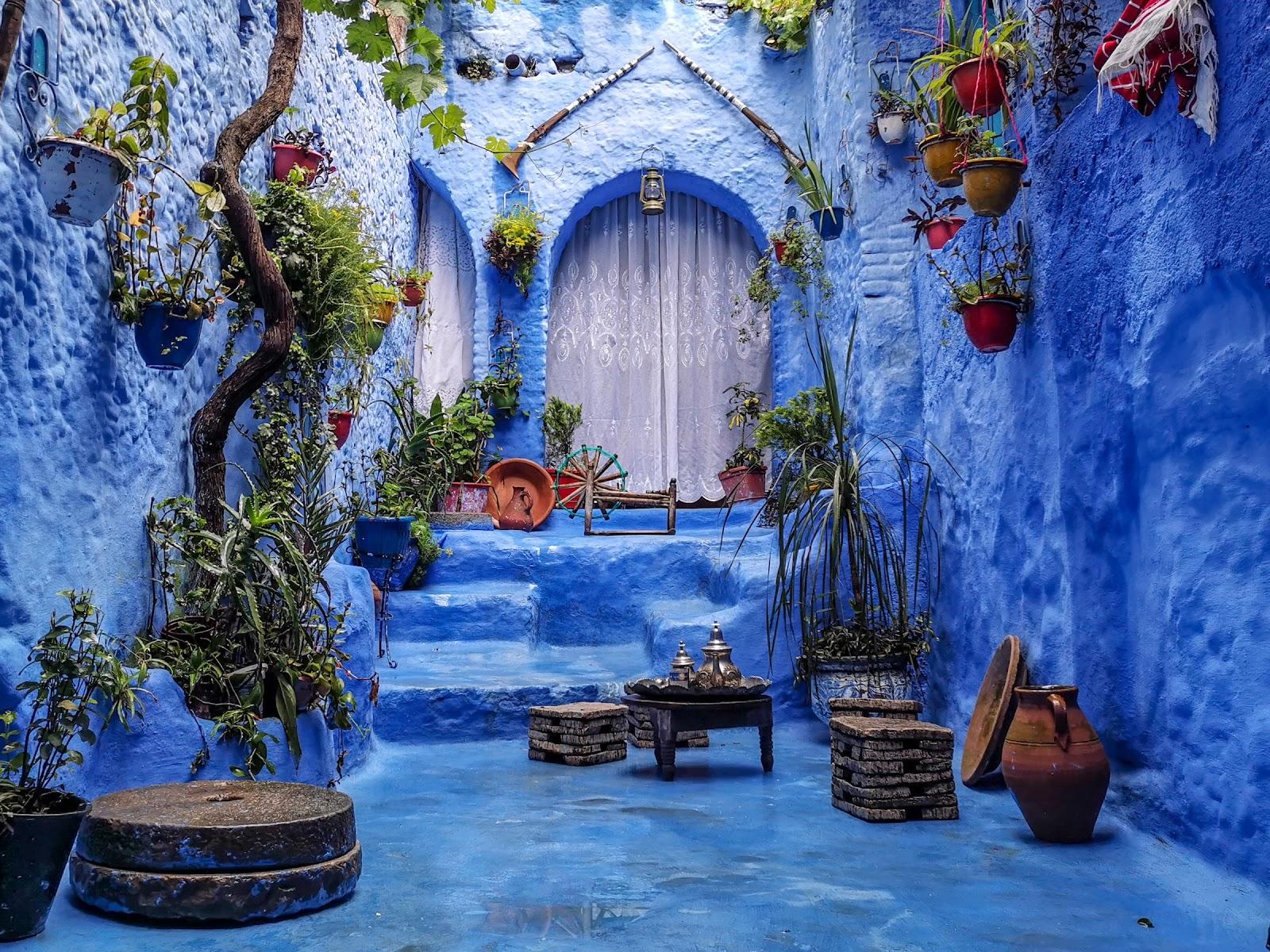
Morocco’s currency import and export regulations
You can only bring in or take out up to 2,000 MAD currency without declaring it. Larger amounts must be declared at customs.
Foreign currencies can be imported and exported without limit, but they must be declared if exceeding certain thresholds.
Order Moroccan dirhams online
At ManorFX, you can convert pounds to Morocco dirhams online, then have them delivered fast and securely to your home or office with Royal Mail Special Delivery Guaranteed®.
You can also opt for click and collect. Pick them up from our travel money shop near Heathrow. Click here to get the best dirham market rate now.
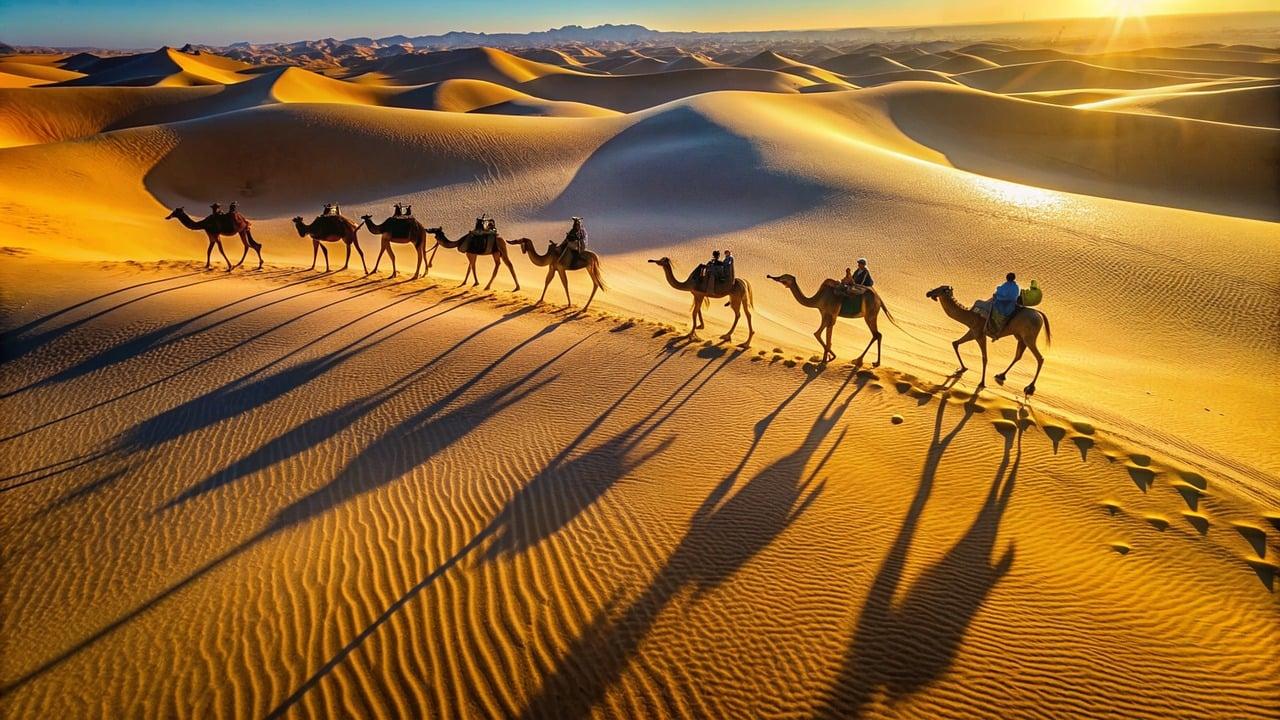
Selling back Moroccan dirhams
We’ll pay a fair price for your leftover travel money on our website. Follow this link to convert dirhams to pounds sterling.
Click ‘sell currency’ on our website and select ‘MAD Moroccan Dirham’. Get the best GBP MAD exchange rate when you convert Moroccan dirhams to pounds.
FAQs
Does Morocco have a closed currency?
Yes, Morocco’s Moroccan dirham is a closed currency and is not freely traded on international markets.
Do I need a visa for Morocco?
Morocco usually permits visa-free entry for up to 90 days for many nationalities. Contact your local Moroccan embassy to check the latest requirements and ensure they haven’t changed before your trip.
Do you need any jabs for Morocco?
Yes, you need certain vaccinations for Morocco. Make sure you’re up-to-date with routine jabs like MMR and tetanus. Hepatitis A and typhoid vaccines are recommended. Always check with your GP for up to date advice before travelling.
What are the top places to visit in Morocco?
- Marrakech: This city is world renowned for its bustling souks, stunning palaces, and vibrant gardens.
- Chefchaouen: Famous for its charming blue-painted streets and relaxed vibe,
- Tangier: A lively port city with Moroccan, Spanish, and French influences.
Casablanca: World War II crossroads, Rick’s Cafe, and iconic wartime romance film setting.
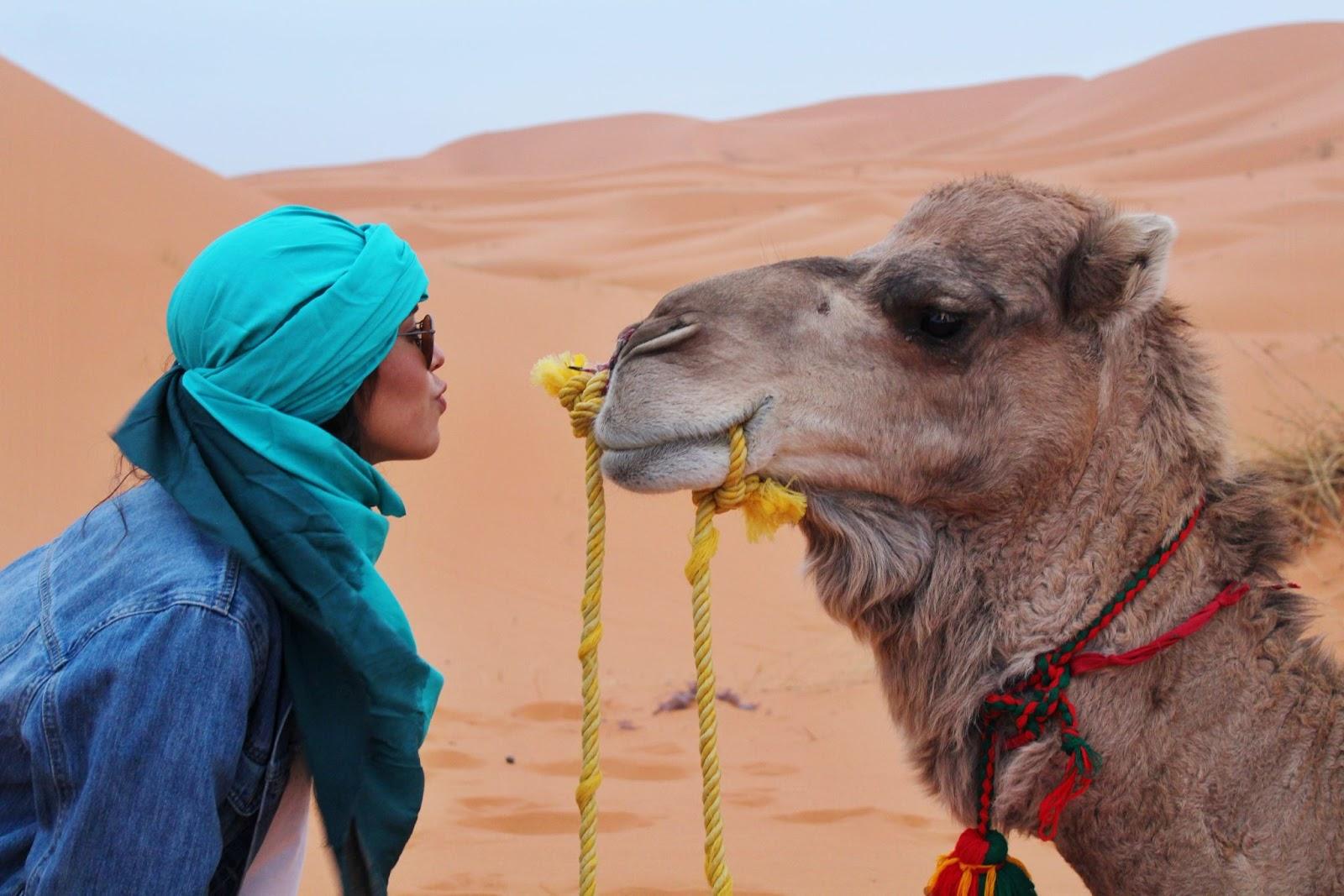
Feel the Trustpilot love

Great competitive rates & friendly & helpful staff. Easy to order online & collect in person or delivery.

Great, fast and reliable service would certainly use again for my travel needs, as the rates are the best around!

This amazing company have gone above and beyond in getting a large amount of a rare currency across the pond to Ireland.

Great rates and really responsive, friendly customer support, will definitely be using Manor FX again.
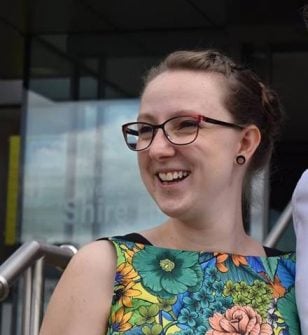
Manor FX gave me a better rate than my bank with great customer service, I highly recommend them.

Family run business that’s always super helpful. Manor FX’s rates are always really good as well!
 Get
Get
Moroccan Dirhams Fast!
- Free home delivery over £750
- with Royal Mail Special Delivery 1pm
- Better rates than the banks